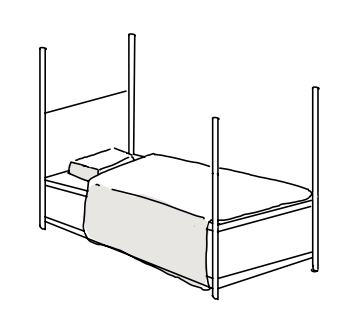Full school days, coupled with extensive hours of rigorous physical demanding practices, followed by mountainous amounts of homework-this is the reality for many stressed, overwhelmed, and overworked student athletes. They are frequently compelled to sacrifice their mental and physical well-being in an ongoing struggle to balance the demands of their academic and athletic commitments.
Claremont High School’s current late work policy gives students one day to make up work for every day absent from school, as stated in the student handbook. The deduction of credit then depends on each teacher, some choosing to give 50% credit, while others will not accept late work at all. This puts athletes in a particularly difficult predicament as there are no specific accommodations regarding extensions.
The main stresser for CHS athletes is not necessarily the workload given but the limited time available to complete them. For instance, the Claremont High School football team is reported to practice from 3:45 to 7:00. While the cross country team practices from 3:45 to around 6:00. This leaves minimal time for homework and studying, potentially resulting in lower grades, and subsequently increasing the stress experienced of student athletes.
When asked whether the lack of time for homework negatively affects grades, sophomore varsity volleyball player Olivia Roberts shared her thoughts.
“Having less time definitely negatively affects you,” Robert said. “You need to stay up really late to get your homework done on time, leaving you not sleeping as long and being less prepared for quizzes and tests the next day.”
In addition to grades being negatively affected by time constraints, the issue of sleep deprivation among student athletes is another significant concern. Roberts reported getting an average of 3-5 hours of sleep during the volleyball season. According to the CDC (Center for Disease Control and Prevention), the consequences of insufficient sleep in children and adolescents extends beyond just academic challenges. It heightens the risk of various health issues, such as type 2 diabetes, poor mental health, and injuries. Beyond physical health effects, sleep deprivation also contributes to attention and behavior issues, further compromising academic performance. The impact of these challenges underscores the pressing importance of comprehensive support and accommodations for student athletes to ensure their overall well-being and foster academic success.
Students that willing participate in sports make that decision with an awareness of the sacrifices that accompany athletic commitments. While students have a responsibility to their commitments, they should not have to face academic stressors alone. Whether that is providing additional time to complete assignments or offering tutors with schedules that align with those of busy student athletes, it is crucial that the CHS ensures that support is extended to student athletes.
One way to address this is increased communication between teachers and student athletes. Administrators may not always be fully aware of the significant time and pressure that student athletes experience, so an open dialog between students and teachers about time constraints could lead to effective solutions of support for students.
Ultimately, students are students first and athletes second. Priority should be given to the academics pursuits of students over their athletics. However, offering additional resources for student athletes will not only alleviate their stress levels but also contribute to an improvement in the overall health and performance of students in the classroom and on the field.







